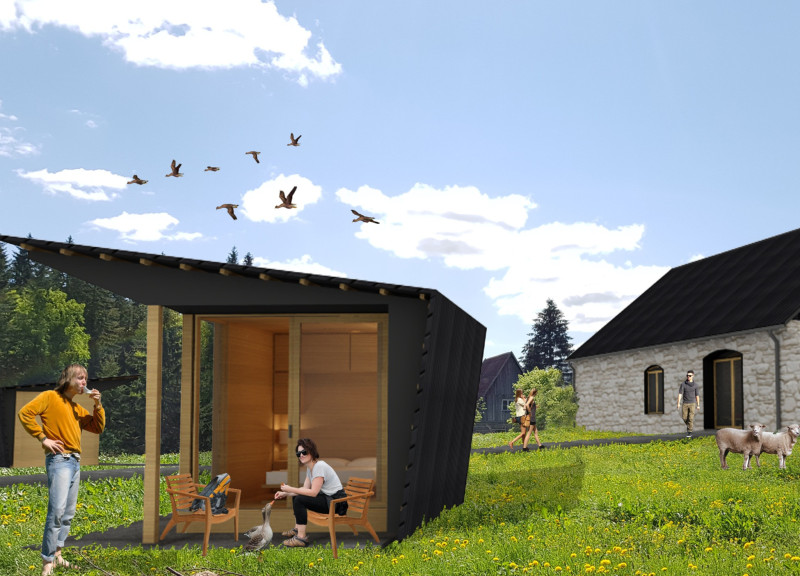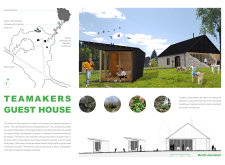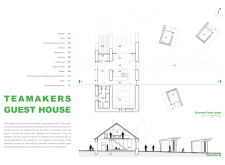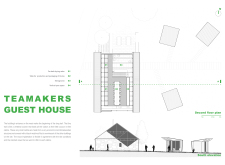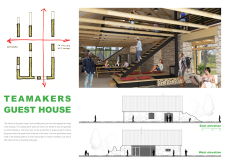5 key facts about this project
The Teamakers Guest House is located near Lake Bezdibenė, designed to blend comfort with a strong connection to the surrounding landscape. The concept focuses on linking the existing stone barn with the natural beauty of the site, creating a welcoming space for guests. By incorporating additional cabins, the design enhances the experience of visitors while promoting interaction with the lake and forest.
Spatial Arrangement
The layout of the ground floor emphasizes shared spaces where guests can gather. Technical and hygienic areas are positioned on the western side, keeping them functional yet discreet. In contrast, the kitchen, dining room, and living areas occupy the eastern side, which opens towards the north terrace. This configuration allows for a smooth movement between interior and exterior, enriching the experience for guests.
Tea Production
On the upper level, designated areas for tea production, drying, and packaging are included in the design. These spaces feature openings in the existing floor, providing visibility to the tea-making process. This element not only serves to educate guests about local traditions but also fosters a direct connection with the region's culture, making their stay more meaningful.
Cabin Design
The newly added cabins are simple structures that are integrated into the landscape thoughtfully. Their placement is flexible, optimizing views and respecting the natural terrain. Each cabin offers a peaceful retreat, and their positioning along a forest trail improves access to Lake Bezdibenė, encouraging exploration and engagement with the outdoors.
The preservation of the stone walls in the guesthouse highlights the site's history and adds character. Inside, the design maintains a straightforward style, with clean lines that balance old and new elements. This approach creates a calming environment, allowing guests to appreciate the natural beauty and history that surrounds them.


